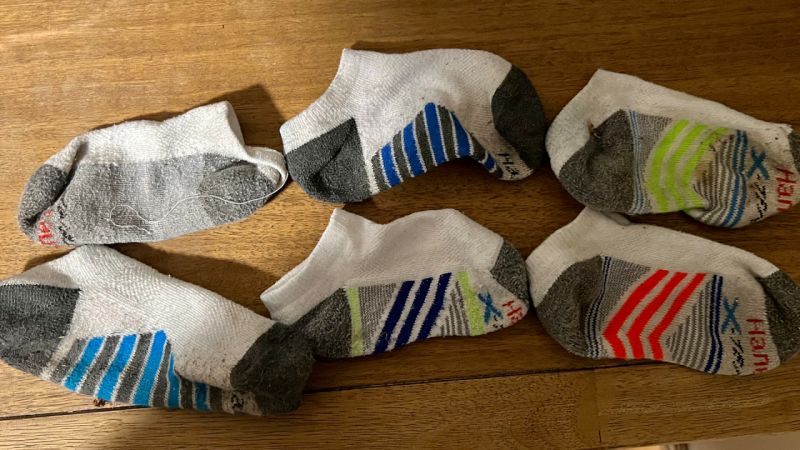
I’ve wasted countless hours of my life hunting for missing socks
I’ve wasted countless hours of my life hunting for missing socks. One minute, they’re happily tumbling around in the dryer. The next? They’ve pulled a classic absent-dad move: “I’m just going out to pick up some milk real quick.” Spoiler: They’re not coming back.
At first, I blamed the socks. “Why can’t you just be where you’re supposed to be?” I’d grumble, shaking a lone sock like a detective interrogating a suspect on Law & Order.
But socks don’t go missing because they’re reckless. They disappear because the system they’re in is broken.
Think about it. In our house, socks run a gauntlet of chaos: overflowing hampers, hungry couch cushions, and an 8-year-old who treats socks like half-empty water bottles at a kid’s birthday party—abandoned without a second thought. There’s no good system in place. It’s a miracle any of them make it to the dryer at all.
Yet every time a sock goes missing, I get frustrated—at the sock, at my kid, at those cursed laundry gods who clearly have it out for me. But the blame game never solves the problem. The issue isn’t with the sock. It’s with the system. “Your system is perfectly designed to get the results you’re getting.” - Andy Stanley
This principle applies at work, too. Deadlines get missed, or projects derail, and we’re quick to point fingers at people. “Why can’t you just do what you’re supposed to do?”
But these aren’t usually people problems. They are system problems. I once heard Andy Stanley say, “Your system is perfectly designed to get the results you’re getting.” Sure, people make mistakes and accidents happen. But, if we’re consistently getting bad results, it’s not about finding someone to blame. It’s about asking, What’s going on here? How can this system be better? What am I missing here?
When things go wrong, I’m learning to step back and look at the bigger picture. Are deadlines consistently slipping? Are certain teams always struggling to deliver? Those aren’t coincidences—they’re symptoms. And like any good detective, our job isn’t to arrest the usual suspects; it’s to investigate the scene. Broken processes, unclear communication, missing tools, or just bad leadership. These are the real culprits behind most of our professional problems. Fixing our systems doesn’t just solve today’s issues; it prevents tomorrow’s.
At home, I’m trying to step back from the sock drama and work on creating a better system for our laundry chaos. And at work, I’m learning to diagnose bad processes before I start pointing fingers. Because when it comes to solving problems, it’s not about assigning blame—it’s about building something better.
And if those missing socks ever do reappear? I hope they bring the milk.